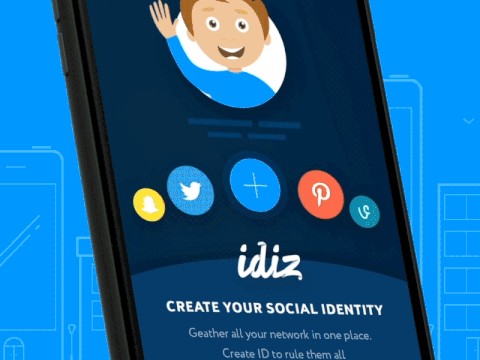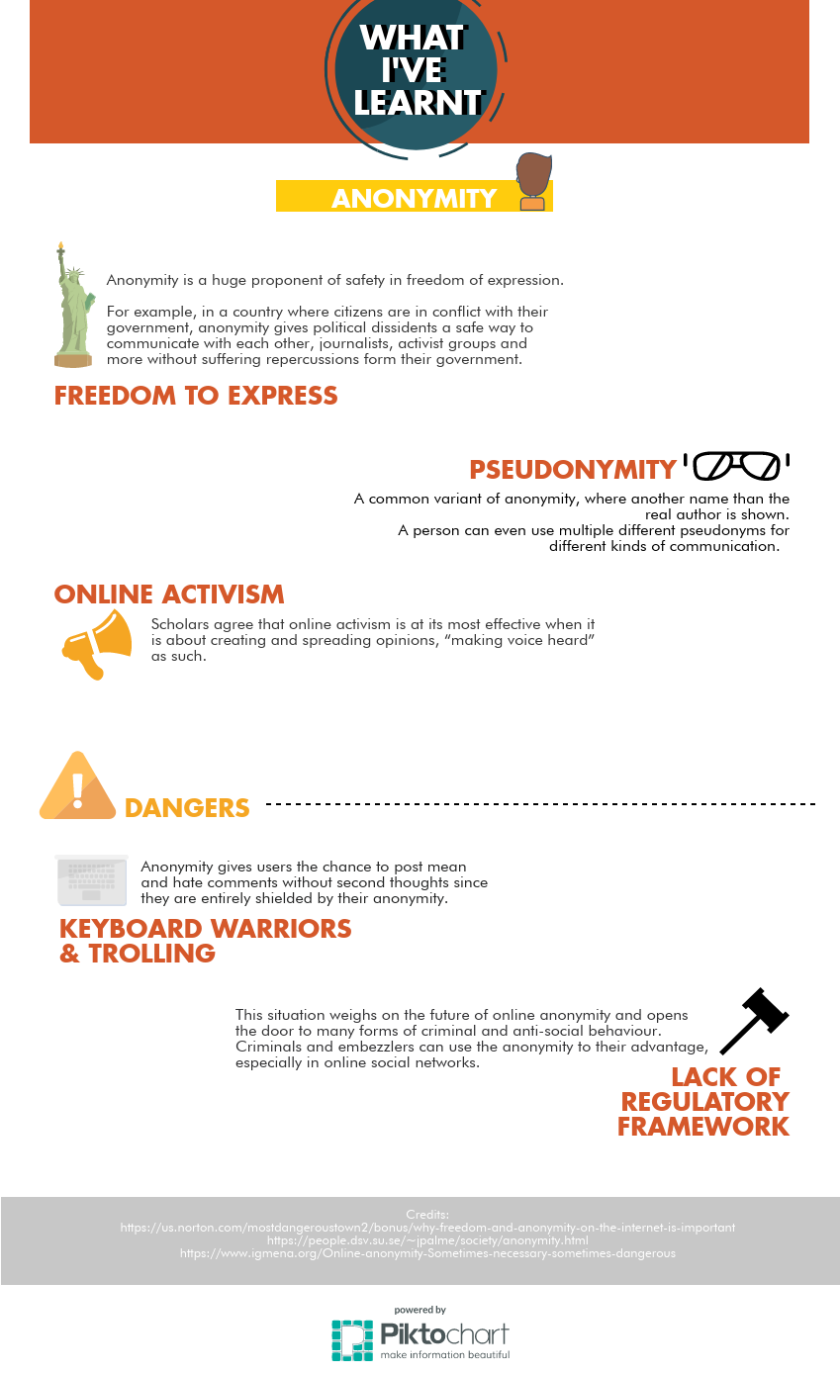
Who would’ve thought that the identity that you have in real life, isn’t the only one you can be known for or recognised by. Reflecting upon my very own online identities, I came to realised that these identities were unknowingly built by myself, though it’s hard to actually explain these identities individually and why they were built these way. Before being exposed to this topic, I never really took a second look at the way I presented myself on my social media platforms or even fathom that registering for an account on a shopping site can also contribute to my online identity!
Reading through and a few other colleague’s post made me realised that many of us identify with multiple online identities since it benefits us by allowing us to separate the different sides of us that we choose to present in different contexts.
One part of online identity that I did not cover that was mentioned in both Eva and Yu Ying‘s post was about anonymity. My first impression on anonymity was a negative one as I quickly associated it with users who hurl hate comments on the Web, thinking that their anonymity can help shield their real identity. But further research showed me that anonymity has also helped marginalized, and otherwise ignored populations be heard as it helped protect these voices, creating more and better contributions to the marketplace of ideas. (Waldman, 2016) For example, when LGBT activists were fighting to make their voices heard, anonymity gave them the freedom to express without having to deal with any direct consequences such as backlash from their existing network, especially since the topic was much more sensitive in the past.

Ultimately, what’s most important is for users to take an active role in managing the identity(s) they own, and making sure that it stays true to what they want to portray on the Web.
Word Count: 298 words
Posts I’ve Commented On:
References:
“Home | Discover Where Cybercrime Goes To Hide.” Us.norton.com. N.p., 2017. Web. 21 Nov. 2017. https://us.norton.com/mostdangeroustown2/bonus/why-freedom-and-anonymity-on-the-internet-is-important
Hyvönen, Sanna et al. Online Activism: The Good, The Bad, The Ugly. 2015. Web. 21 Nov. 2017. chrome-extension://oemmndcbldboiebfnladdacbdfmadadm/https://studentportalen.uu.se/uusp-webapp/auth/webwork/filearea/download.action?nodeId=1469123&toolAttachmentId=299062&uusp.userId=guest
Palme, Jacob, and Mikael Berglund. “Anonymity On The Internet.” People.dsv.su.se. N.p., 2004. Web. 21 Nov. 2017. https://people.dsv.su.se/~jpalme/society/anonymity.html
Saadaoui, Sami. “Online Anonymity: Sometimes Necessary, Sometimes Dangerous.” Igmena.org. N.p., 2017. Web. 21 Nov. 2017. https://www.igmena.org/Online-anonymity-Sometimes-necessary-sometimes-dangerous
Waldman, Ari Ezra. “The Dangers Of Anonymity On The Internet.” The Forward. N.p., 2016. Web. 21 Nov. 2017. http://forward.com/shma-now/tochecha-rebuke/353506/the-dangers-of-anonymity-on-the-internet/
